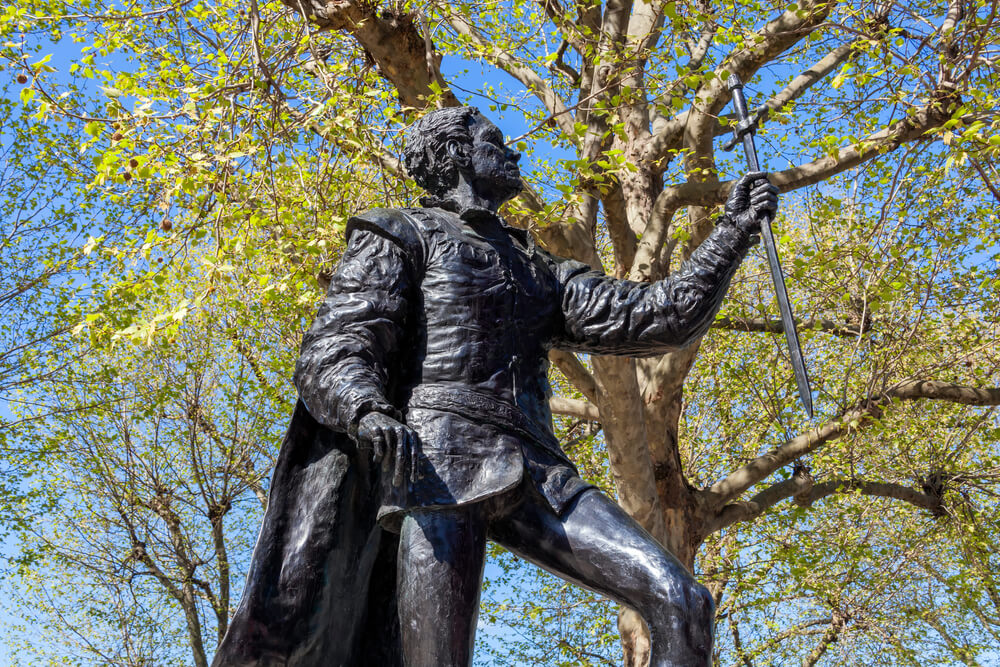You could be forgiven if a cursory sweep of the Internet left you convinced that every great speech in history had taken place in, and focused on, North America.
From Dr Martin Luther King’s seismic social reform using diction to bring about change throughout the 1960s to 1970’s (“I have a dream”, “I have been to the mountaintop”) to a constant series of political and social insights by a number of US Presidents who have left their giant footprints in history through the power of thought and diction. That road has been well-travelled by many genius playwrights and great literati.
Of course speaking has a variety of components, all contributing to the overall effect. Dr King had a terrific “preacher’s voice”: the strength and dramatic cadences of his Baptist faith.
The word I would use to describe the key to a great speechmaster when it comes to spectacular communication is “timbre”. Essentially, the timbre of a human voice, or of musical instruments, is what makes them sound different from each other.
But a real timbre is rich and deeply resonant - a male voice has a big advantage. Some examples are Dr King, and certain actors and individuals, like King Charles III and Ronald Reagan. I’ll also cite Mikhail Gorbachev. NOT Boris Yeltsin.
What makes a great speech?
So what makes a great speech? A clear, relevant message is a good start, punctuated by lively, interesting stories. A great writer like Shakespeare made the most of the actors he had at his disposal in order to produce wonderful pieces of great literature and even showmanship often a long distance from historical accuracy when he wrote about characters who actually existed.
I’ll stick my neck out and quote a couple of Shakespearean speeches which are well-known: Hamlet’s soliloquy and Mark Antony’s eulogy to Caesar.
Both are iconic and both tackle existential questions along with questions of the human condition, none of which we have resolved yet. We are lucky to be able to watch some of the “acting greats” on our computers.
 As for Hamlet, it doesn’t matter that he was played by rickety, crotchety old Sir Lawrence Olivier and Sir John Gielgud
As for Hamlet, it doesn’t matter that he was played by rickety, crotchety old Sir Lawrence Olivier and Sir John Gielgud
My preferred Mark Antony is Charlton Heston, although Marlon Brando usually gets the most credit. Both these great actors have timbre and resonance of course, but not only do they understand the need for form of a speech as well as its content.
Shakespeare used Mark Antony to be seasoned to be aware of the benefits of “going second”, which not only resulted in an opportunity to refute elements of Brutus’ speech, but actually to challenge what he said, and ultimately turned the crowd against Brutus and his “honourable men”.
As for Hamlet, it doesn’t matter that he was played by rickety, crotchety old Sir Lawrence Olivier and Sir John Gielgud - this is an example of when nobody cares who’s these actors are playing; dead or alive.
The greatest speeches
So time for a bit of plagiarism: here, according to The Manual in October this year, are the 10 greatest speeches in history:
1. Dr Martin Luther King (“I have a Dream”)
2. Demosthenes (“Third Phiippic”: exhorted his fellow Athenians to fight Philip of Macedon - Alexander’s dad
3. Queen Elizabeth I (exhorted the English to take arms against the Spanish Armada
4. George Washington (Resignation Speech)
5. Abraham Lincoln (Gettysburgh Address)
6. Chief Joseph (Surrender Speech)
7. Lou Gehrig (“Luckiest Man” speech)
8. Winston Churchill (“Fight them on the Beaches”)
9. John F Kennedy (Inaugural speech)
10. Barack Obama (Democrat keynote speech)
That will give you some reading material. And apart from parts of Queen Elizabeth I and parts of Winston Churchill, they are all American